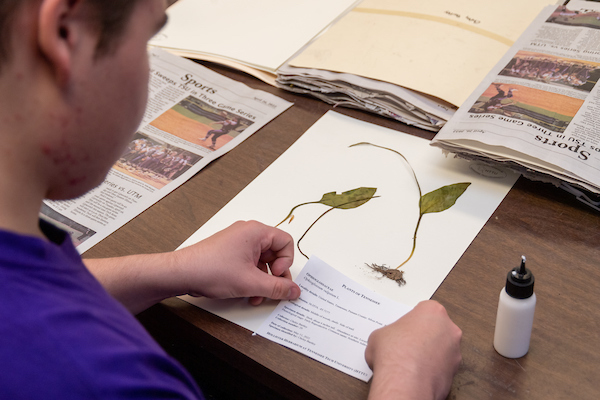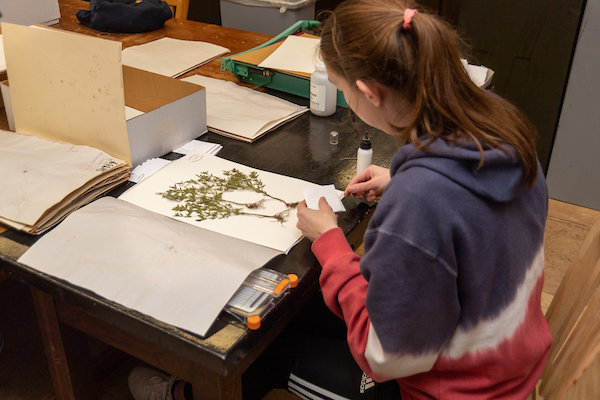“Learning modules will give the high school students an entrance to the specific language of botany”
Cookeville – Educators at Tennessee Tech University have received the Institute of Museum and Library Services Grant for Tech’s Hollister Herbarium and are utilizing it to develop community outreach and botany education in high schools in Putnam and surrounding counties.
The IMLS states their mission is to advance, support and empower America’s museums, libraries and related organizations through grantmaking, research and policy development. IMLS’s mission is essential to helping these institutions navigate change and continue to improve their services.
Shawn Krosnick, associate biology professor, and Kelly Moore, curriculum and instruction senior lecturer, received the three-year grant. They used the first year to develop 10 learning modules that can be utilized in high school biology classes. The second year was spent testing, implementing and seeing what needs to be revised in the modules. Now in the program’s third year, high school teachers are implementing the modules into their biology lesson plans.
“It’s to help high school students learn about the importance of plants and also about natural history collections,” Krosnick said.
This grant is to teach students about plants, but also about specimens and how they can inform about historical events, about people, the uses of plants for people and the distribution of plants, according to Krosnick. Students learn exactly what a plant is, how to collect the plants, and what major group of plants they might choose to study.
A hurdle the high school biology teachers have to overcome is trying to incorporate botany into their lesson plans while still conforming to state standards. Krosnick said that time is also a factor. There is a limited amount of time in the academic year and the teachers who chose to utilize the learning modules have to integrate them into their already through lesson plans. Having the learning modules created and ready makes it easier for the high school teachers to work the topics into the school year.
In one of the lessons, students were asked to pick a plant that had a significance to their family. They then had to research the plant, obtain a specimen, document it, classify it, and prepare the specimen for the herbarium. They had to upload the information into a central database that would then be searchable for other researchers.
“I’ve had several college students that have worked for me in the herbarium as curatorial assistants that have come to the schools to help with the specimen collection and documenting,” Krosnick said.

Botany – The study of plants is key to the future of Agribusiness
Krosnick said the learning modules will give the high school students an entrance to the specific language of botany, and help initiate a friendship and understanding of herbariums. Educational videos were also produced to help educate and explain the opportunities within the botanical community.
The Hollister Herbarium was formally established in 1969 in honor of long time Tech professor Paul L. Hollister. The collection currently houses over 40,000 museum-quality plant specimens documenting more than 3,600 species of flowering plants, ferns and conifers in Tennessee.
Krosnick said the oldest specimens in the herbarium however came from fern specialist Dorr R. Bartoo and it was unofficially created in 1930. Bartoo began assembling a collection of plant specimens for teaching in 1924. Bartoo was the first Ph.D. to be appointed to Tech’s faculty in 1929.
The herbarium has actively worked to develop research, education and outreach activities over the past years. These include providing research opportunities for undergraduate students, offering tours to local K-12 students and community groups, developing collaborations with local schools, providing loans to and exchanging specimens with other institutions, as well as providing resources to state agencies.
For more information on the Hollister Herbarium visit https://www.tntech.edu/cas/biology/herbarium/history.php.
Photos courtesy of Tennessee Tech.









